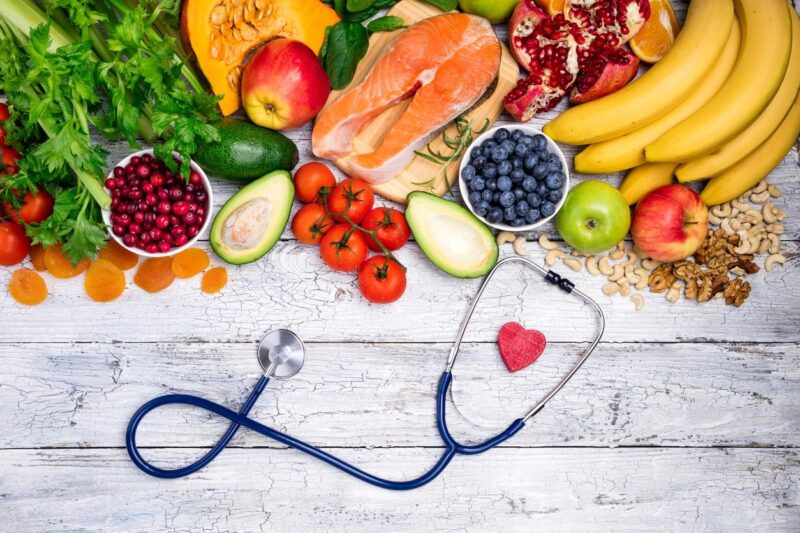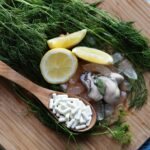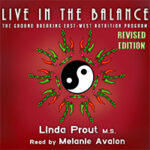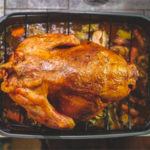Virus-Fighting Diet, Supplements
One day, years ago, when I was in acupuncture school, my professor, an MD and Chinese medical doctor, came into the classroom with a baseball bat. He gave it a good slam against the brick wall. Not much happened to the wall although the bat splintered a bit. Then he took aim at the fluorescent lights overhead. A collective shriek from students appeared to abort the bulb attack.
The point he was making: Your immune system can function like a brick wall or more like a fluorescent tube. (The bat, of course being a virus). Chinese medicine, he said, is about making your immune system more like a brick wall. As I watch coronavirus deaths in Italy exceed that of China, I wonder how much TCM was at play in China.
How do we get an immune system more like a brick wall? Chinese and Ayurvedic medical traditions have observed the power of diet and herbs in bolstering immunity for thousands of years. These systems put little stock in killing germs, of any kind. It’s more about the strength of the host: You.
You should continue with frequent hand washing and social distancing but keep in mind studies show a nutrient-dense, diet, one free of refined sugars, can boost your immunity by 50 to more than 70%. This assumes you are getting a full night sleep and are coping with stress.
Think about it: Why are the elderly and those with compromised immune systems more susceptible to COVID-19? Their immune systems are weaker. Advanced age, cancer treatments, and certain health conditions mean a diminished immune system. Strategic diet, botanicals and supplements are well known to bolster immunity. You can give yourself an edgeagainst the COVID-19 or any other virus. An edge. Is this a guarantee you will stay well? No. Nothing, not even a vaccine can do that. In fact the seasonal flu vaccine, according to CDC statistics, fails 97-99% of patients who get one, and things are even worse in the elderly. (They trick you by using relative risk statistics not absolute risk).
A Yale School of Medicine team found animals fed a high-protein, high-fat, low-carb keto-type diet were half as likely to get influenza A when exposed compared to animals fed a high carb or sugary diet. A diet rich in fats, meat, poultry, seafood, eggs and non-starchy veggies activated a subset of T cells in the lungs, enhancing mucous production from airway cells that trap the influenza virus. The lungs are where we most need protection from COVID-19. This virus was not specifically studied, but there is good reason to believe it will help here.
A big part of this is no sugar. Donuts, candy, ice cream, Frosted Flakes, soda and other sweet treats damage immunity, disabling our ability to fight infections. Sucking on a soda, or other sugary drink or food, can reduce your white blood cells’ ability to kill viruses and bacteria by 40% for 4 to 5 hours. Sugar does this, in part, by taking up valuable real estate in white blood cells needed by vitamin C to perform its antiviral action. See my previous post on vitamin C.
Sugar also fuels inflammation, a process that is highly damaging to all tissue but especially the lungs, which are particularly susceptible to the serious complications of COVID-19 infection.
It is assumed because we live in the land of plenty, we get all the nutrients needed to keep immunity strong. This is a fallacy; many Americans actually suffer borderline or outright deficiencies of key immune-bolstering nutrients. Low levels of vitamins C, A and D as well as zinc and iodine can put us at risk of infections of all kinds.
Zinc is critical for many aspects of immunity, from healthy skin (a pathogen barrier) to healthy cell walls. Zinc is critical for many enzymes, for production of natural killer cells, macrophages, T cells, and B-lymphocytes, all components of the immune system. According to the American Journal of Clinical Nutrition, zinc deficient individuals are more susceptible to bacteria and viruses.
According to Oregon State University, as many as two billion people around the world are zinc-deficient. Those over 60 years of age in this country are more likely to be low in zinc due to poor intake coupled with reduced absorption. Vegetarians, those with gut issues, alcoholics, heavy alcohol drinkers and are all at higher risk.
The best zinc food sources are beef, lamb, and oysters.
Be careful with supplements. Taking high dose zinc can lead to a copper deficiency and other side effects. Taking 25-30 mg of zinc for a while can be helpful if you suspect you are low. Signs of low zinc include getting sick often and poor wound healing.
Even better, follow the advice above: Eat more red meat, the main source of zinc in our diet. Oysters are the richest source of all and will easily give you all you need if you enjoy them often. Grains (especially unleavened breads), nuts and legumes are high in phytic acid, which can bind zinc and make it unavailable. Fermenting, soaking and sprouting these foods reduces this effect.
Interestingly Iran, a country hit particularly hard by coronavirus has a very low meat intake, plus they consume a lot of unleavened breads, the perfect storm for zinc deficiency.
With their rainbow of colors, veggies provide key vitamins, antioxidants, and phytochemicals that cool damaging inflammation so be sure you are getting plenty. Particularly helpful are dark leafy greens such as broccoli, asparagus, mustard greens, collards and spring pea shoots. Garlic, especially raw, is well known to fight pathogens. Add minced garlic to greens after cooking or make pesto. Onions and leeks are helpful and a flavorful base for soups and stews. Bake up some winter squash and slather it with butter or ghee.
Fermented veggies including kimchi, sauerkraut, beet kvass, and live pickles feed the gut microbiome, which protects us against cold and flu viruses, and preventing secondary infections.
Mushrooms deserve special mention. They have been used in Eastern medicine for thousands of years for longevity, immune health, and fighting infections. Each mushroom has its own unique medicinal properties. Shiitakes are a common culinary mushrooms known to have antiviral properties. They can inhibit the growth of many kinds of viruses, from herpes to hepatitis to influenza.
Other immune-boosting culinary mushrooms include maitake, enoki and oyster. Reishi is a potent immune booster that can also help keep you calm in the midst of this virus chaos. It is woody and inedible, thus used in powders and tinctures.
Below are nutrients and foods known to keep immunity healthy. Herbs are a whole other category, which deserve mention as herbs can be powerful medicines. The COVID virus is too new for us to have proof that anything works, but we do have good evidence. I have been blessed to know physicians who have been treating patients with the following natural substances successfully for many years, including treating sick patients during this outbreak.
Keep in mind when specific nutrients are used at higher than RDA levels, they can act much like drugs in pushing enzymatic and other reactions in the body. We are not just talking about correcting a deficiency state with these nutrients. As with any medicine however, it is important to know what you are doing. Get help from a medical expert knowledgeable in use of nutrient therapy.
Vitamin D: Take enough to keep blood levels in the 40-60ng/ml range. Sources: sunlight on bare skin (the best), fatty fish, cod liver oil, pastured egg yolks, fortified foods.
Vitamin C: 1-2 grams three times a day, more with infection (see previous post on IV C). Sources: all veggies and fruits, although this is not enough for a medicinal effect. (Note some argue against high dose C for prevention, although the MD’s in practice I know say it is helping)
Zinc: 25 mg per day. Sources: lamb, grass fed beef and oysters
Vitamin A: 10,000IU per day. With infection, and NOT if pregnant, take 100,000IU for 3-4 days at the beginning. STOP after 3-4 days. Avoid if pregnant. Avoid higher doses long term. Sources: cod liver oil, butter, liver, pastured egg yolks.
Omega 3 fatty acids: Sources: fatty cold water fish, flax seeds, walnuts, green leafy veggies. Ideally take 1-3 tsp. cod liver oil per day.
Iodine/iodide: 12.5mg or more per day. Source: sea veggies
Quercetin: At least 1 gram per day if sick. Few studies have been conducted on optimum dose. Source: fruits and vegetables, although it takes a supplement to deliver medicinal benefits.
Melatonin: Levels decline as we age and lowest in the highest risk age category for complications from this virus. Melatonin is anti-inflammatory and is thought to play a role in management of viral infections and might prolong life in coronavirus sufferers. If nothing else, it might help you sleep, which does reduce risk.
EGCG (found in green tea, especially matcha)
Mushrooms: culinary mushrooms, tinctures and powders
Elderberry: A low sugar version of the syrup might reduce risk of viral infection
Fermented foods: sauerkraut, kimchi, tempeh, yogurt, kefir, live pickles, beet kvass and other ferments
Sleep: Get 7 to 8 hours
Exercise: Work up a good sweat each day.
Nutrients have a synergistic relationship. Grassroots Health collects vitamin D and health statistics on hundreds of participants. Those with vitamin D levels above 40 ng/ml had a 41% reduced risk of catching the flu. Those with higher D levels who also took a vitamin C supplement and had high omega 3 levels saw 72% fewer flu infections.
What to Avoid
Smoking: This is a no-brainer. Since COVID-19 has the potential to damage the lungs, it would make sense that cigarette smoke can leave you more vulnerable. Men in China, who smoke more than women, have far higher rates of infection than women. Many suspect it’s the smoking.
Ibuprofen and acetaminophen: Like smoking cigarettes, ibuprofen increases ACE2 receptors in the lungs where COVID-19 binds, making you more susceptible to infection. It may also enhance the infectious capabilities of the virus. Acetaminophen depletes glutathione, one of the body’s most important antioxidants and disease fighters.
To reduce inflammation naturally, keep refined sugars low, increase omega 3 fats, and add in curcumin and ginger, as well as white willow bark.
Those with the strongest immune systems will survive this. Sadly your access to information like this is often suppressed or deemed quackery. It is challenging to prove a supplement or herb treats any condition because these substances aren’t patentable and thus no one wants to spend money on studies. It is not legal for me, or even your doctor, to advise diet or natural alternatives to treat any condition. So to be clear, I am not a physician and not offering advice to treat, prescribe or diagnose any illness including COVID-19. For a medical condition, seek a knowledgeable and qualified health practitioner. This is for educational purposes only.






